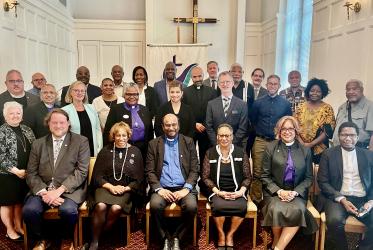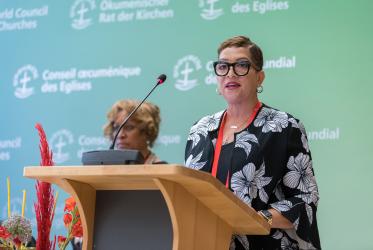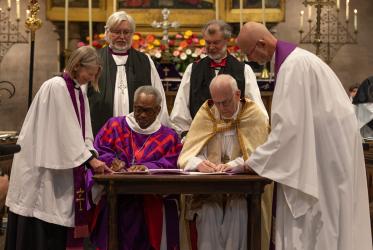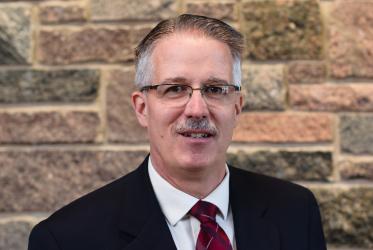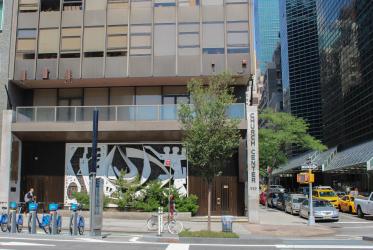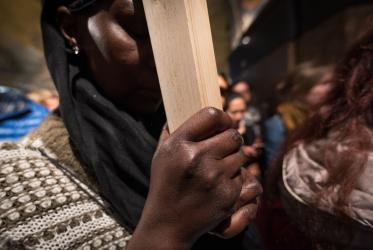Église réformée d'Amérique
In the colonial town of New Amsterdam in 1628, nearly fifty people gathered in a mill loft to celebrate the Lord's supper. Their communion marks the birthdate of the Reformed Church in America. The congregation they founded continues today as the Collegiate Reformed Church in New York City, the oldest evangelical church in North America with a continuous ministry.
Incorporated in 1819 as the Reformed Protestant Dutch Church, the denomination changed its name in 1867 to the Reformed Church in America (RCA). The RCA spread westward throughout the 19th century, although most of the church's influence continued to be among settlers and immigrants of Dutch descent, including two congregations organized in Alberta, Canada, in the early 1900s. Another expansion in Canada took place following World War II, as the RCA worked to assist Dutch immigrants seeking to make a new start in Canada. In the 1950s, Americans moving to the cities and suburbs prompted the RCA to organize 120 new churches, many among people unfamiliar with the Dutch heritage and Dutch Reformed traditions. To further welcome people from other backgrounds, between 1969 and 1980 the RCA formed four racial-ethnic councils (Pacific and Asian American, Hispanic, Native American Indian, and African American). In addition, urban ministries focus on churches and people who live in cities throughout the US and Canada. Denominational approval of the ordination of women as elders and deacons came in 1972, though women had been ordained to those offices beginning in 1970. The first woman RCA minister was ordained in 1973, and ordination to the office of minister was opened to all women in 1979.
The RCA is presbyterian in government. It accepts the inspired word of God as its only rule of faith and practice. The concept of covenant and the sovereignty of God are important emphases in its theology. Mission continues to be a priority, especially through the "mutual mission" initiative (begun in 2002), which fosters exchanges of people, knowledge, and understanding between the long-established North American churches and their younger, innovative, growing counterparts in Africa, Asia, and Latin America. The church has a strong evangelical emphasis and seeks ways to address important social and global issues, including hunger, world peace, and disaster response.
The RCA's statement of Mission and Vision, introduced in 1997, spells out the calling of the church "to follow Christ in mission, in a lost and broken world so loved by God." "Our Call," the denominational goal, builds on the mission and vision statement. Our Call was initiated in 2003 and focuses on revitalizing existing congregations and starting new congregations, while building on the foundations of discipleship, leadership, and mission. Reformed and always reforming, the RCA has moved into the 21st century, rooted and established in careful theology and committed to grow as the Spirit leads.
